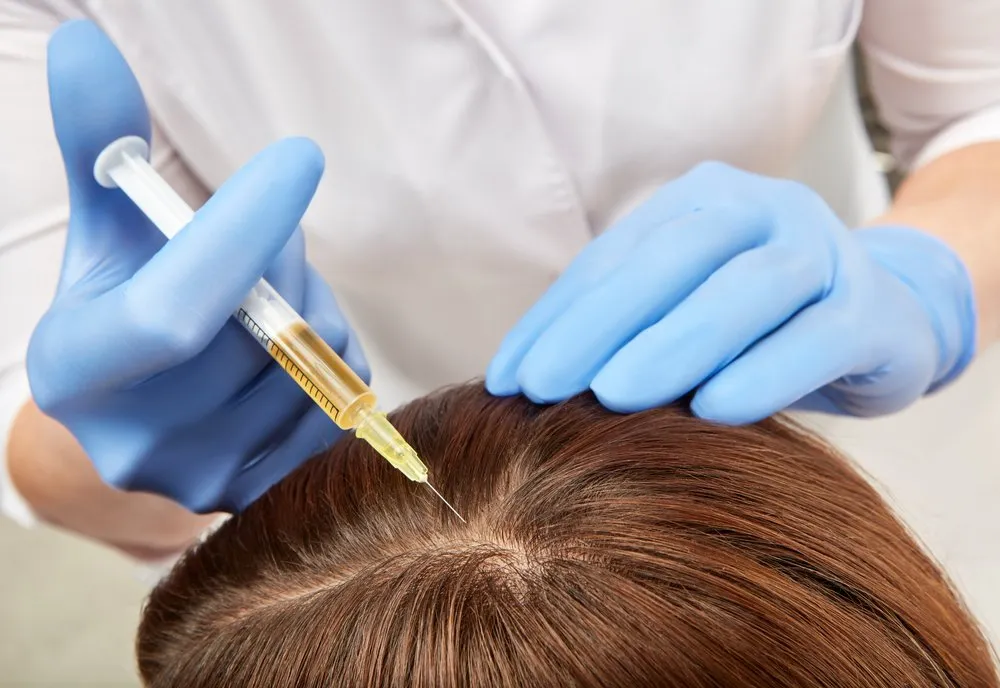Worried about unexpected Post-Surgery Hair Loss? You’re not alone. Many people experience post-surgery hair loss due to physical stress, medications, or nutritional changes that occur after a procedure.
This guide explains why it happens, how long it lasts, and—most importantly—what you can do about it. Backed by expert insights and real patient experiences, this post will help you manage hair shedding confidently and begin your journey toward regrowth and recovery.
What Is Post-Surgery Hair Loss?
Post-surgery hair loss refers to excessive shedding or thinning that occurs after undergoing a medical or cosmetic surgical procedure. It is often temporary and triggered by the body’s stress response to surgery.
Types of Post-Surgical Hair Loss
- Telogen Effluvium: The most common type. Stress pushes hair follicles into the resting phase, causing shedding 2–3 months after surgery.
- Shock Loss: This happens after hair transplant surgeries, especially near the recipient or donor areas.
- Alopecia Areata (rare): An autoimmune reaction triggered by physical or emotional stress.

Common Procedures That May Trigger Hair Loss
- Hair transplant surgery
- Cosmetic surgeries (facelift, liposuction, rhinoplasty)
- Bariatric surgery
- Orthopedic and cardiac procedures
Why Does Hair Fall After Surgery?
Hair shedding after surgery is a natural response to stress and systemic changes in the body.
Physical Stress on the Body
Surgery places stress on multiple systems—this physical trauma can disrupt the hair growth cycle.
Anesthesia and Medications
Some anesthetics and post-op drugs (like antibiotics, painkillers, or anticoagulants) may contribute to temporary hair thinning.
Hormonal Changes and Nutritional Deficiencies
Surgical recovery may involve:
- Low protein or iron intake
- Vitamin B12 or zinc deficiency
- Hormonal fluctuations (especially after bariatric surgery or in women)
Reduced Blood Supply to Hair Follicles
Some surgical procedures may limit blood flow or oxygen delivery to the scalp, weakening hair follicles.
How Long Does Post-Surgery Hair Loss Last?
Typical Shedding Timeline
- Begins 2–3 months after surgery
- Peaks around months 3–4
- Usually resolves within 6–9 months
When Does Hair Start Growing Back?
- Hair regrowth typically begins around month 4 or 5.
- Full regrowth may take up to 12 months, depending on the individual and type of surgery.
When to Worry: Signs of Permanent Damage
- Shedding that persists beyond 12 months
- Bald patches instead of diffuse thinning
- No visible regrowth by month 6
Pro Tip: If shedding is excessive or patchy, consult a dermatologist to rule out conditions like scarring alopecia or alopecia areata.
Is Hair Loss Normal After Surgery?
Yes, it’s very common—especially due to telogen effluvium.
Medical Perspective: Telogen Effluvium Explained
According to dermatologists, up to 30% of patients experience noticeable shedding following surgery due to a shock to the hair cycle.
Treatment Options for Post-Surgery Hair Loss
Fortunately, most cases don’t need aggressive treatment. However, certain therapies can accelerate regrowth and support follicle health.
Topical Treatments
- Minoxidil 5% (Rogaine): Stimulates follicle activity
- Anti-hair fall serums with caffeine, biotin, or peptides
Oral Supplements
- Biotin, zinc, and vitamin D
- Iron and folate (especially post-bariatric surgery)
- Hair multivitamins with saw palmetto or marine proteins
PRP Therapy and Advanced Options
- Platelet-rich plasma (PRP): Stimulates natural growth factors
- Low-Level Laser Therapy (LLLT): Improves blood flow to follicles

Lifestyle Changes and Stress Management
- Adequate sleep and hydration
- Avoiding tight hairstyles
- Stress reduction: meditation, light activity, breathing exercises
Recovery Timeline and What to Expect
Week-by-Week Overview
| Time Frame | What to Expect |
|---|---|
| Week 1–4 | No shedding yet; body healing |
| Month 2–3 | Noticeable hair shedding begins |
| Month 4–6 | Hair regrowth starts; baby hairs visible |
| Month 7–9 | Thicker strands return; volume improves |
| Month 10–12 | Full recovery possible |
When to See a Specialist
- Hair loss persists beyond 6–9 months
- Scalp inflammation, redness, or scaling
- Bald patches instead of general thinning
Expert Advice on Managing Hair Loss After Surgery
Dermatologist Insights
- Avoid aggressive hair styling
- Start a supplement plan before surgery if possible
- Ensure a protein-rich diet during recovery
Preventive Tips Before Surgery
- Speak to your surgeon about medications and nutrient monitoring
- Consider baseline bloodwork for iron, B12, zinc, and thyroid function
Questions to Ask Your Surgeon or Hair Specialist
- “Will this surgery affect my hair health?”
- “Should I take biotin or other supplements post-op?”
- “When is it safe to restart hair treatments or coloring?”
When Should You Be Concerned About Hair Loss?
Seek medical attention if you notice:
- Sudden bald spots
- Plus, redness, or inflammation
- No regrowth after 9–12 months
- Hair falling in clumps
Hair loss may signal underlying issues like:
- Autoimmune conditions
- Hormonal imbalance
- Scalp infections
Frequently Asked Questions (FAQs)
Is post-surgery hair loss permanent?
No. In most cases, it’s temporary and resolves within 6–12 months.
Can I use minoxidil after surgery?
Yes, but consult your doctor, especially after cosmetic or hair transplant procedures.
How can I prevent hair loss after surgery?
Support your body with adequate nutrition, gentle hair care, and stress management.
What vitamins help post-surgical hair regrowth?
Biotin
Zinc
Vitamin D
Iron (if deficient)
Hope and Healing for Post-Surgical Hair Loss
Experiencing hair loss after surgery can be alarming—but it’s usually a temporary setback on your path to healing. By understanding the causes, tracking your recovery, and using expert-backed treatments, you can confidently support your hair’s return to full health.
Ready to take control of your hair recovery?
Book a consultation with Dr. Rana Irfan, Pakistan’s ABHRS-certified hair restoration expert, to get personalized treatment and expert advice on managing post-surgery hair loss.
